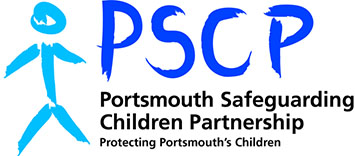Substance misuse
Not all substances used will result in a person becoming physically dependent on it. However addiction may result for some people if substance use becomes frequent; this is in part due to changes in brain chemistry when substances are used as they target the reward centre of the brain; addiction can be summarised by ‘the overwhelming compulsion to use something for non-medicinal reasons’. But addiction can also depend on a number of other factors i.e. biology, environment and stages of a person’s development; addiction can interfere with the ability to resist urges and maintain self-control therefore trying to stop using substances can be extremely difficult.
Not all people who use substances will acknowledge they have an addiction or dependence, some may deny or refuse to believe it is the case. Be sensitive with people, if they feel they are being ‘nagged’ they may not listen to you. Instead offer support and encourage them to make changes, even if they are small ones.
Helping someone who isn’t ready to change their behaviour may be difficult, and the decision for them to get help is ultimately theirs. It is understandable to be concerned or protective over someone who is using substances, but you also need to look after yourself, speak to someone who can support you too.
If you are worried there are some things you can do to support a person who wants to try and stop using substances; stay calm and open-minded.
- Learn about substances, including alcohol – but facts, not myths
- Don’t expect them to ‘just stop’. Some people can but usually it requires effort and some intervention such as learning new skills to manage the desire to use
- You can suggest your friend stay away from situations or places which might entice them – like a mate’s house/pub (but only if they mention it is an issue for them, if they don’t mention it you will sound as if you are suggesting their friends are bad influences – that might not go down too well). Explore with them some other things to do to keep themselves busy i.e. walk, gym, music
- Offer some excuses they can tell people they normally use to avoid situations; i.e. I’ve got something to do, I’ll meet you later, I have an appointment, my mum/dad/aunt is expecting me
- Don’t lecture or bribe; Offer support without ‘nagging’, tell them you are concerned and are willing to help them
- Don’t argue with someone who is under the influence
- Suggest they seek support from a specialist service
Harm Reduction
- As much as possible make sure you know what is being taken e.g. is it ecstasy? Herbal incense or cannabis?
- If using ecstasy/MDMA – Drink half to 1 pint of water an hour – NO MORE. Start with low dose. Do no re-dose too quickly. On a come down drink isotonic drinks e.g. sports drink to replace loss of salts and minerals in body. Avoid mixing with other substances.
- Chemicals such as MDMA/Ecstasy/cocaine increase your body temperature so take breaks if dancing etc.
- Only use small amounts of any substance. Do not re-dose too quickly. wait for substances to take effect before using more.
- Strengths of substances can vary between batches.
- If snorting powders use your own note or better still your own tube and don’t share this with anyone.
- Rinse your nostrils with clean water between snorts to reduce the risk of nasal damage and to remove particles.
- Alcohol – Know what you’re drinking, be aware of ‘spiking’; alternate between alcohol/soft drink. Drink water to stay hydrated, try to not drink more than 4 units in a day (4 shots of spirits/ approx. 2 pints lager-depending on strength)
- Try to avoid mixing substances with others, especially with alcohol as this increases the chance of overdose.
- Have an excuse ready to leave somewhere if you don’t want to be there or feel unsafe
- Have someone you can call on standby to come and get you
- Before going out, set up a special code with someone; you can text them this code, they can call you and provide an excuse for you to leave somewhere if you need to – no one else will know.
